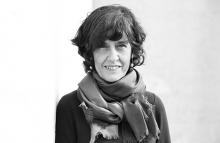FRAILTEK
Proyectos
FRAILTEK: New strategies for the development of tools and products aimed at the identification and assessment of frailty syndrome.
Ageing is a global and expanding phenomenon in advanced societies. It is an opportunity in its holistic view but constitutes a major socioeconomic challenge: this new demographic distribution generates significant imbalances in the social and health care system that could threaten the sustainability of the said system in developed countries, including the Basque Country. Public policies and strategies for research, development and innovation promoted by public administrations at regional, national, European level, as well as in other economically advanced countries, are prioritising research on ageing, its main priority being the identification of determinants of successful ageing and the prevention of dependency.
The focus of the FAILTEK project is frailty syndrome, a situation that entails multiple factors that are highly prevalent in older people where the functional reserve and resilience are reduced. Precursoring usual loss of autonomy and therefore anteroom of dependence. Frailty, unlike dependence, is reversible. Therefore, early identification of subjects who suffer from it, and their proper assessment would avoid or delay the onset of dependence, thus improving the quality of life of these people and controlling the social, family and health costs burden associated with dependence.
The process of identifying and assessing fragile subjects constitutes a work camp of exponential growth in the field of research and innovation, both in services and technologies. This project seeks innovative methods of identification and assessment that complement the usual ones and that allow the identification of frailty to be systematised and incorporated into current care procedures.
The factors that converge in the generation and development of frailty are many, and, as such, functional, cognitive, behavioural and biological aspects must be considered. While partial approaches have been the most frequent when studying this syndrome, this consortium has the ability to pull together all in a unique collaborative project, FRAILTEK which will address this holistic view of frailty, considering the aforementioned components and integrating all of them for analysis and assessment. This comprehensive approach to frailty syndrome represents an innovative focus with great capacity to add value in an area with great potential and high expectations in the clinical, health, economic, and social fields, in addition to being transferable to geriatric care and to the business sector.
Objectives
The main scientific-technological objective of the FRAILTEK project is to further knowledge of the multidimensional characterisation of frailty (as a precursor to the loss of a person's autonomy and precursor of the status of “dependent person”) and in the development of innovative strategies for its identification and treatment, developing for it technological components that are transferable to Basque industry with which it can support a new range of advanced products and services targeting the emerging health-related ageing sector.
The above mentioned objective is divided into two strategic objectives from the point of view of science and technology:
- Furthering knowledge of the symptoms and signs that make up the frailty syndrome from a global and conciliatory perspective, taking into account its multidimensionality and biological substrate.
- Characterising from a conciliatory perspective geriatric frailty syndrome (functional capacity, cognition, psychosocial factors, multimorbid patterns, use of health and social resources, lifestyles and biological substrate)
- Proposing a protocol for an integrated approach to fragility suitable for application in the field of primary care
- General pre-clinical models for studying frailty
- Developing technology-based solutions that permit innovation and improving the methods currently used for the identification and clinical assessment of frail subjects, which in turn gives them support to practice training for both prevention and treatment of this condition.
- Developing new methods and tools for measuring the study of sitting
- Developing new methods and tools for thorough evaluation and training of postural balance.
- Developing new methods and tools for measuring functional capacity and cognitive status simultaneously
- Identifying patterns of life associated with frailty
- Developing new biological methods for identification and early detection of frailty, in the most minimally invasive way and over more accurate targets
- Methods and analytical tools for assessing frailty
The project also has a powerful objective of transferring the results to the emerging market of products and services for health.
Results
The expected results of the project focus on generating scientific knowledge and technological development. The key contributions of the FRAILTEK project in the frailty study are:
Methods and prototypes for comprehensive identification and characterisation of pre-frail, frail and dependent as a result of multisystem and multidisciplinary approach to the consortium.
This approach includes:
1.A quantifiable, reliable and detailed study of functional capacity:
- including the assessment of postural balance as a sign for identifying frailty and the risk of falling. The suggested instrument is able to assess not only the balance and movement in static situations but also the capacity for postural adaptation of subjects and training it.
- incorporating as a measure of functional capacity study of the dynamics of the sitting, that is, how a subject lets his/her weight dropped into a chair and how he/she is able to move because it is considered a more reliable and accurate method to measure the time spent on this act. For this, a technological development capable of performing this measurement is proposed.
2.The integrated physical and cognitive function study: the project proposes the construction of a new test identifying the frailty based on the execution of a combined physical-cognitive task (dual task), compared with the compartmentalised study of both dimensions that was done today. The application of this instrument will be systematised using a technological development capable of measuring both functions together.
3.The study of usual life patterns of fragile subjects, i.e., the behavioural adaptation of the person in response to the decreased physiological reserve in everyday activities, both in performing physical activity and social activities, taking the space where the person develops his/her life into consideration, and paying special attention to his/her home. For this, it is proposed to monitor the habits and patterns of daily life and physical activity linked to the measurement of psychosocial variables (perceived vulnerability, loneliness, emotions, etc.)
4.The study of genetic and biochemical markers for identifying frail subjects. A genetic and molecular pattern will be identified that associates with and characterised frail subjects. This pattern will serve as a proof of concept that will become a future diagnostic kit
5.The integration of the previous approaches from a multidisciplinary perspective based on access to information generated in the project and in a collaborative work dynamic, will allow for a multidimensional characterisation of frailty in the subjects studied and the assessment of capabilities of the various diagnostic strategies studied. As a result, the following will be obtained:
- A comprehensive approach protocol for fragility that will focus on the functional, cognitive behavioural and biological fields, and suitable for application in the field of geriatric care.
- An intelligent platform that will collect all the data from this global vision, from which the computer representation of the frail individual and the context will be obtained.
These technological developments, predictably up to a TRL5, are expected to be of real use and fully accepted by the Basque geriatric care system. Also, they are expected to carry out a successful transfer process to the Basque business sector, which enhances and helps diversify their marketing strategies towards health, and succeeds in introducing these products in different hospitals and local and international health centres, as well as in the homes of the elderly. Early identification and assessment products will rely on ICT, electronics, advanced manufacturing and biotechnology technologies, and will have an extension towards the training of some capabilities, such as postural stability and balance. These are products are aimed at Primary Care Centres, homes and even mobility.
Consortium

IIS BIODONOSTIA
CEIT-IK4
CIDETEC.IK4
IK4.TEKNIKER
VICOMTECH.IK4
Matia Institute
UPV/EHU




